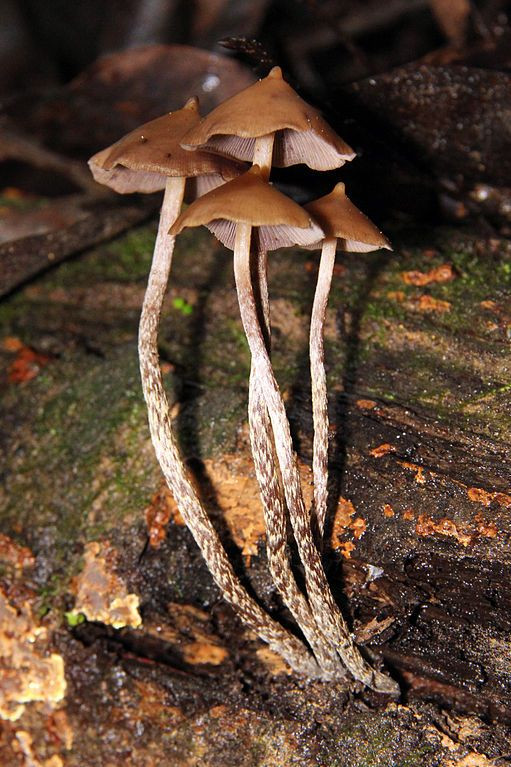Chemical in Magic Mushrooms, Psilocybin, May Help People With PTSD Overcome Fear

Normally, the thought of magic mushrooms in relation to people suffering from post-traumatic stress disorder (PTSD) would conjure images of the person freaking out from their fears taking shape in hallucinations. But researchers have just found that low doses of the psychedelic compound in magic mushrooms, known as psilocybin (PSOP), may be able to help people overcome their fears at a faster rate.
The study, conducted on mice, could have implications for humans suffering from PTSD. Researchers from the Lieber Institute for Brain Development wanted to see how PSOP affected the brain's learning and removal of a conditioned fear response.
They injected mice with PSOP, saline — as the control — and ketanserin, which counteracts the receptor that binds PSOP in the brain. The mice were put into a testing chamber where they were conditioned to become fearful of a 15-second audio cue, which was followed 30 seconds later by brief electric shocks through the floor. After the researchers did this 10 times, with about three minutes in-between each shock, all of the animals had become feaful of the sound cue, and would freeze upon hearing it.
The next day, the mice were put back in the chamber, but although the cue would sound, there was no shock that followed. The researchers wanted to wean the mice out of being scared by teaching them that the sound no longer meant a shock. After only three sounds of the cue, the mice treated with the low doses of PSOP — low enough for them to avoid hallucinations — were able to stop freezing upon hearing the cue. Mice that were given higher doses of PSOP, or the ketanserin, froze until the tenth trial, and mice given the control continued to freeze after the tenth trial.
While the researchers aren't exactly sure why the PSOP was able to stop the mice from freezing so fast, they say it could be because the drug is able to modify and control neural circuits. The mice that received low doses of PSOP also showed higher rates of brain cell growth, or neurogenesis.
"At the low doses of PSOP that enhanced extinction, neurogenesis was not decreased, but rather tended toward an increase," they wrote. "Extinction of 'fear conditioning' may be mediated by actions of the drugs at sites other than hippocampus such as the amygdala, which is known to mediate the perception of fear."
In other words, PSOP seemed to promote growth of new brain cells that helped erase memories, including those of the fear response.
"Memory, learning, and the ability to relearn that a once threatening stimuli is no longer a danger absolutely depends on the ability of the brain to alter its connections," Dr. Briony Catlow, lead author of the study, told Real Clear Science. "We believe that neuroplasticity plays a critical role in psilocybin accelerating fear extinction"
Because PTSD is believed to arise from similar fear conditioning, Dr. Catlow believes that using PSOP in humans with PTSD could be a possible treatment. The disorder affects almost 7.7 million adults in the U.S., and according to a 2006 analysis of military records from the National Vietnam Veterans Readjustment Study, 15 to 19 percent of Vietnam veterans experienced PTSD at some point after the war. With regards to the Iraq and Afghanistan conflicts, of the 1.7 million soldiers who served, 20 percent have been diagnosed with PTSD.
Source:
Catlow B, Song S, Sanchez-Ramos J, et al. Effects of psilocybin on hippocampal neurogenesis and extinction of trace fear conditioning. Experimental Brain Research. 2013.
Published by Medicaldaily.com



























